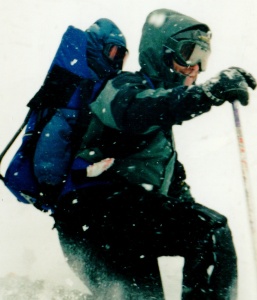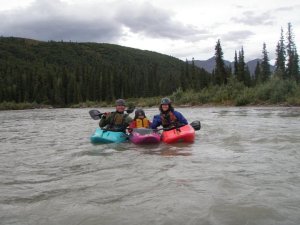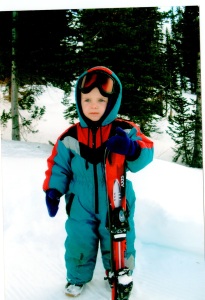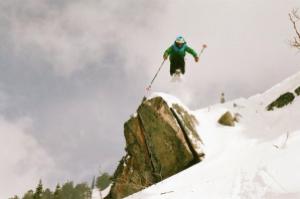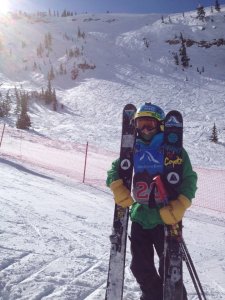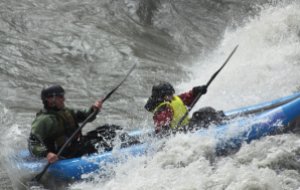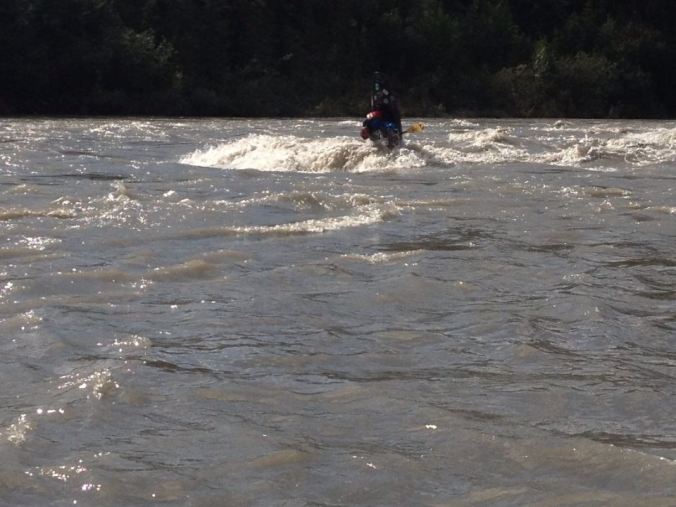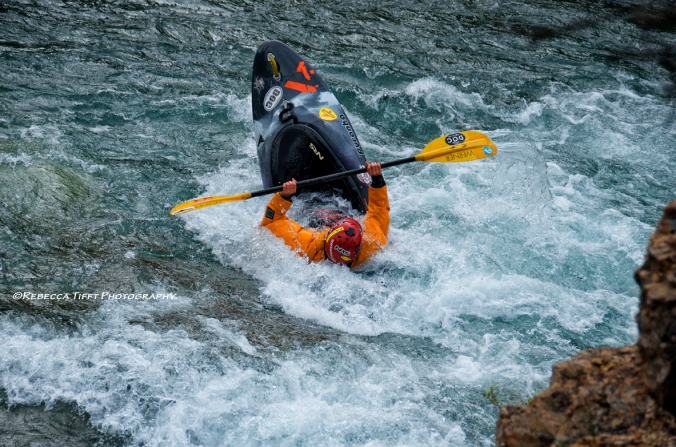People ask me what a professional nomad is, and what I’ve discovered is it’s not so much about their profession as the common values that define them. Guided by passion, money is a secondary notion which is precisely what makes them so admirable. For many, the pathway to financial viability was muddled at first, yet these nomads have blended their lifestyle with their career to cultivate something unique in the pressures of this 9-5 world.
I’ve been writing Professional Nomads for a little over a year now as a fun project that’s held me accountable after stepping away from writing for a few years. The people I’ve been fortunate enough to interview this year have been inspirational. Elements of failures and successes, crossroads and dedication, trailblazing, and an overall willingness to say “fuck it” and blindly pursue their own thing echoed in my ears and reinforced how important it is to share these stories with the world. What started as a creative outlet to help me return to writing has guided me through multiple life issues.
From competitive dog musher to glacier pilot to filmmaker, these paradigm shakers continually reinforced several important lessons to me. Now, a little more than a year into this mission of sharing inspiration from professional nomads, I want to pack down what I’ve learned into a few pocketable nuggets of wisdom.
1. Invest in your skills
It’s simple. To fully realize a talent you need to invest time into it. Lots of time. To even consider taking it to a professional level, however, you need to embed it into your everyday life.
It’s not enough to carve time out of your day. Evolve your mindset to infuse that skill/trade/passion into the fabric of your existence. Invite it into all dimensions of your life so that you can learn the skills it demands and become comfortable with them. Events, clubs, books, websites, magazines, and the ProNo skill-building page can steep you in the culture and help you develop a community. Ultimately, though, whatever it is you’re interested in you need to be doing it. A lot. If you want to run dogs then you need to be running dogs. If you want to fly airplanes then you need to be flying airplanes. Investing in your passion deepens your connection with the world around you and strengthens your soul. The more you embrace the thing that you love by respecting it with your time, the more engrained into your lifestyle it will become.
Aliy Zirkle didn’t become one of the most successful dog mushers in the world in one winter, but it took her less than that to discover her passion for it. Over the next several years she dedicated significant time to mushing simply because traveling the country by dog team fulfilled her. She didn’t set out to mush competitively—let alone in thousand-mile races—but by investing her time, money, and heart into the sport she learned all the little tricks and details that experience reveals. Now Aliy’s a top-five Iditarod competitor and arguably ranks as the people’s favorite musher.
Trent Griffin realized that, more than a college degree, to be the type of pilot he envisioned required real Alaska flying experience. He cut to the core of his dream, left the university setting, and joined a flight club that allowed him to fly tail-draggers on skis. Trent streamlined his education and cultivated his dream career flying ski planes in Alaska and dropping skydivers in Hawaii.
Trent Griffin: I was like, “why do I need to pay all this money to be part of a university setting when I could just be part of a flying club?” And I did. That allowed me to start flying tailwheels. So right at 100 hours flying tailwheels and flying ski planes. it was awesome. Once I started flying on skis it was like I really like doing this. It made flying this total open abyss where you could go, especially in Alaska. You’ve got lakes everywhere, flat surfaces, and tons of snow. As long as you’re being careful, you can get there on skis.
Aliy Zirkle: When I moved [to Bettles, Alaska] I knew nothing about dog mushing except it sounded really cool. So I got one book by this woman, who’s probably from Wisconsin and I figured out the harness and tug lines. […] I went out probably 12 miles, my dogs probably went 12 miles an hour, maybe. I would set up a little camp with a tarp and a bonfire and I’d cook dog water on a fire and camp out there. That was really cool to me, being totally self-contained with no mechanical anything—fire, dogs, snow shoes, and go. […] After I’d been there a couple years I met these people who were savvy to what dogs could really do which is phenomenal. I keep learning what dogs can do.
2. Create your opportunities
Professional Nomads make their own destinies. These people weren’t born on a golden pathway toward success; they listened to what was important inside them and used that as a starting point. With no clear path in mind, each person found a way to get connected and made their own luck by creating something where only vision and desire existed.
Phil Hilbruner wanted to guide on the Kenai River. Fed up with low paying, dead-end jobs in the city he moved to the river he loved to fish. He brought a keg of beer to lubricate connections within the local fishing community as he learned the fishery. He now owns and operates Catch a Drift, a driftboat guiding business, and is embedded in the Cooper Landing community.
Dirk Collins teamed up with friends and although collectively they had zero background in film they made their own ski movie, broke industry conventions, and began Teton Gravity Research—one of the most successful adventure media brands in existence.
Aliy Zirkle quit her job with Fish and Wildlife to bartend and run sled dogs as much as possible across Alaska.
These people didn’t let life just happen to them, they took the reigns and without knowing where it would ultimately take them, dictated their direction in life.
If you feel something in your heart don’t be thwarted by uncertainty; germinate the idea seedling and bushwack your way toward success. The path may be unclear, but by following your heart you will continually find ways to create opportunity.
Aliy Zirkle: When I decided to leave Bettles and come back here and be a bartender and work construction instead of retaining my Fish and Wildlife job, that was my decision right there. But my hook was dogs. That was a conscientious decision where I saw myself in twenty years.
Dirk Collins: With business and life I’m always taking the most difficult path because I feel like that’s the one that’s closest to your heart. You’ve got to fight to do what you want to do, and it’s really easy to say “it’s too difficult or I’m too beat down” or whatever and I’m just going to get a normal job or I’m just going to go work for a big company because that would be easy. I’ve just never been able to do that.
3. Trust the universe and ante up
Ante up, especially if you’re broke. Although money can be part of it, it’s far from everything. It means invest yourself, your time, energy, and whatever resources you have available into your passion. The very act of saying “this is worth the risk to me” is a game changer, and when you really commit to trusting the universe people will respond.
Every professional nomad encountered a crossroad in life where logic told them to take the safe road toward a comfortable career and lifestyle—yet something made them go over the line and ask the world for something more. That singular decision put them on the path that solidified them as the professional nomad we admire today.
As a manager for Alaska Wildland Adventures, Brooke Edwards had benefits, flex-time, and all the other perks that signified she’d “made it” in the seasonal lifestyle. But she missed guiding and felt untrue to herself. She stepped down to make room for something new, and within a week she had a job guiding in Antarctica followed by a winter position with her local heli-ski company—both of which sought her out. By making room for opportunity, instead of clinging to a job she felt should satiate her, Brooke’s trust in the universe paid off.
Buckwheat and Louise had to strike a balance outside the traditional family paradigm. Initially, they were scoffed at for disrupting their son’s schooling by moving him from Alaska to Utah and back again every year, yet by doing so they opened up doors for him and for their family as a whole. By trusting the universe and vowing to learn as they went, they invariably taught their son Louis to dedicate himself to what he believes in and trust the universe, as well.
Through opportunities in his migrational lifestyle, Louis can now out-kayak and out-ski most adults, and continues to excel in school. Meanwhile, his parents run a successful rafting business in the summer and have careers they return to in Utah every winter. They could have locked themselves into a sedentary lifestyle to meet the constraints of the school year but that would have created financial hardship. Instead they took the pillars that were most valuable to their success as a family and molded the school year to fit around their family’s migrational lifestyle.
Professional Nomads will risk everything to create success as they define it and it’s that devotion that manifests success from the universe.
Buckwheat: “It’s all about risk, all of these things,” Buckwheat says. “It doesn’t always work out, and it doesn’t always work out the way you expect it to, but if you have the fortitude and the gumption to accept the consequences as they be, whatever it is, you know, you learn from it, you grow from it.”
Brooke: “I feel like the older I get the more I trust in that go-with-the-flow approach. I feel like if I just keep living my passion, it will keep unfolding.”
4. Stick to your values
It’s not what you do, it’s how you do it. This isn’t gambling on a whim; it’s a calculated decision that you are putting yourself behind. It is because you are in tune with your values that you can do this. If you are pulling from your heart it’s probably a risk worth taking. Life’s cruel joke, however, is that those desires closest to our hearts are most difficult to put out in front of the world. They become vulnerable and subject to ridicule, which feels worse than failure. This very insecurity is partially because we all secretly wonder if we’re good enough and we’re a little afraid to find out—but that mentality only secures failure. When all seems lost and the world too tough, let your values be your guiding force—one step at a time. Do what you have to do to accomplish the next step now. If you stick to your values and believe in yourself, others will, too.
Dirk Collins: If it’s a bad day or a good day or a bad month or a bad year I’m still super stoked to get up and do my job, like, I love it. I get to work with phenomenal people and I get to go to amazing places and I learn new shit every day and, you know, a lot of it’s super dangerous and a lot of it’s hard work, actually probably all of it’s hard work and but I’m living, right? I believe in everything I do.
5. Work hard. Seriously.
This is by far the number one thing that separates successful people from the unsuccessful. It doesn’t matter what is required to get started, professional nomads devote themselves to seeing it through, no matter what the obstacle.
If you really eat, sleep, and breathe what you do you will invest more hours than you ever thought you were capable of giving. You may not enjoy all the day to day tasks, but you find a way to accept them because they are part of the package. Aliy Zirkle didn’t decide she wanted to scoop poop every day of her adulthood, but it came with the dream to explore Alaska via sled dogs.
Invest in what you believe in, not some corporation’s agenda. You will work so hard that financially you may reduce your hourly wage to chicken feed compared to your peers, but what a great thing to invest yourself into: yourself. And that’s just it—it’s not a job, it’s a lifestyle, and if it’s really a passion you simply don’t have a choice. Passion is more work than you can pay a person for, but the net value is far greater than something as trivial as money.
Aliy Zirkle: I can’t imagine how many hours a week I put into my quote job now, so 40 hours a week is like a pittance. So if you’re really going to have an impact on something, like work really hard at it for the amount of time that it’s needed and then take a little breather.
Dirk Collins: People love to throw around quotes from famous people who took risks. Most of those guys are dead or legends and they’re all about living your dreams and it’s better to have tried and lost than to have never tried at all and it’s like, yeah, those things are easy to throw around but to live that is super difficult and to live that you’re going to get beat the fuck up, and so most people can’t do it. They can put it on their photo on Instagram or whatever but to actually live by that I’ve learned there’s not too many people that do it. And I try, I really try to do that and because of that I do get beat up but because of that I feel like I’m pretty pure to doing what I believe in and I get to do amazing things.
The Takeaway
Every interview invigorated me for weeks at a time. They shook up my writing and began covertly rearranging pathways in my own life—something I was oblivious to initially. Each interview reaffirmed my silly idea, and although I didn’t have a compass I recognized these conversations as cairns on the path I blazed.
My passion is to write about this untrodden subject matter dear to my heart. By sharing these stories, my hope is that I might inspire at least one other person—perhaps that fifteen year-old version of myself sitting in a suburban Midwestern classroom thinking there must be something else possible beyond office life—to pursue what is meaningful for them regardless of what outsiders think. If I can succeed in that, then I will become successful by my own standards, the only measurement that truly matters.
Although I set out to inspire others, these conversations have shifted the sands of my life. They’ve implored me to take positive aspects of my world and reshape them into new trailheads to explore. There’s no map ahead of me, but but like the professional nomads before me I’ll embrace my passions as well as the knowledge that there is still much to learn. If I trust the universe and stick to my values then I can’t get lost.
****
Click “Follow” on the right sidebar to get notification for the next piece in this series. Next month I’ll share the ups and downs from my own experience throwing caution to the wind at the start of last spring. In retrospect, it’s helpful to know which way the wind is blowing before throwing anything, but I’ve learned that the winds of life are often tricky.







